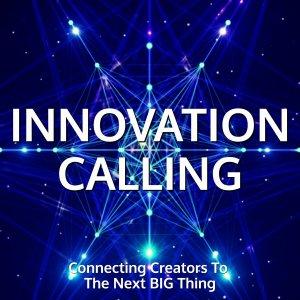Innovation Calling

Studying the Human Brain to Make Better Marketing Decisions
Overall, does technology actually help us or hurt us? More importantly how does it specifically affect our brains? It may seem like an impossible task to answer, or something that we will have to wait and see as we wait for this generation to grow older.
However, thanks to companies like Marketing Brainology, we can see first hand the consequences of stress, multi-tasking, and the use of excessive technology has on our brains.
Marketing Brainology focuses on helping companies connect to their consumers and shoppers by helping them to understand the art and science of the decision-making process. Their state of the art technology is used to study the brain as decisions are being made, and it also helps to understand how outside factors truly affect our brain.
We had the honor of sitting down with President Dr. Michelle Adams to find out how their technology works, studies that they have done, along with the results, and the future for their innovative technology (because this can go way beyond marketing).
Here is the official episode breakdown:
1:20 - We meet Michelle and learn more about her company, and how she got into this interesting field of Brain Science
5:20 - Michelle gives some great examples of some of the studies they’re currently working on, and the results the they have seen from their studies. Plus there’s one really great tip about how to get better engagement from Instagram Ads
6:30 - How they can tell what’s happening in the brain when things like auditory triggers happen, and what exactly they’re looking for in these studies
8:40 - The difference between highly emotional people vs. people who aren’t as emotional, and why it’s important to understand the different personality types when marketing
11:52 - With all of the opportunity of this technology, how is Brainology staying focused on the main studies that they’re doing?
14:10 - How can leaders utilize this technology to understand their workforce and how to better lead their teams?
15:10 - The future of brain monitoring, and the intricate details we can learn and monitor.
16:50 - How good is the data if there is so much variability in our brains, i.e., if simple, every day things like coffee and stress have such a huge impact on our brain productivity?
18:24 - With so many different personality types and so many different varying degrees of the brain, how do companies begin to make more general decisions in their advertising based on the feedback they’re getting from these studies?
21:10 - We dig deeper into the findings of men centered ads vs. women centered ads.
23:00 - Their partnership with Brain Scientific, and who they purchase their technology from
27:15 - The importance of messaging in ads, and how certain ones resonate with people
30:10 - How are companies embracing the whole Neuro-Science side to marketing, and how exactly are they using these tools as a whole within their strategy
32:30 - Are they truly understanding the caliber of these advanced studies?
34:30 - How does seasonality affect these studies and marketing, and does this cause the marketing and the messaging to change?
40:05 - The importance of rituals and memories when it comes to memory and remembering
42:30 - As much as we understanding the importance of nostalgia, when does a company know it’s time to pull a plug and move on to something new vs. hold on to the old.
44:30 - What are the trends generationally for marketing?
47:50 - With the evolution of the brain among generations, does the term multi-tasking still remain a myth?






 Visit Podcast Website
Visit Podcast Website RSS Podcast Feed
RSS Podcast Feed Subscribe
Subscribe
 Add to MyCast
Add to MyCast